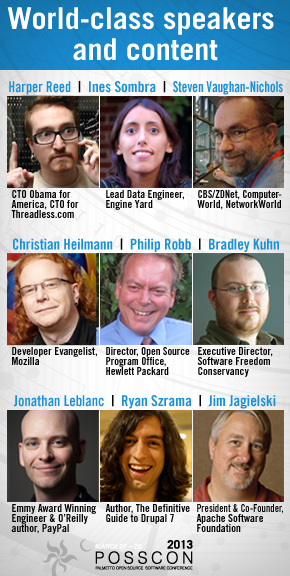Thursday, April 4, 2013 - 01:30 pm
Swearingen 2D05 (Former Staff Lounge)
COLLOQUIUM
Department of Computer Science and Engineering
University of South Carolina
Jingjin Yu
Department of Electrical and Computer Engineering
University of Illinois at Urbana Champaign
Date: April 4, 2013
Time: 1330-1430 (1:30pm-2:30pm)
Place: Swearingen 2D05 (Former Staff Lounge)
Abstract
As we know, Kalman filters, given their effectiveness in handling probabilistic events, play an important role in the processing of probabilistic sensor information, such as point clouds gathered from laser scanners. However, not all data is amenable to probabilistic analysis - some problems induce inherently combinatorial data structures. For these problems, a combinatorial filtering approach is necessary. In this talk, I discuss two such robotics (sensor fusion) problems. The first problem generalizes visibility-based pursuit-evasion games and seeks to maintain the distribution of hidden targets that move outside the field-of-view of the pursuers while a sensor sweep is being performed. Observing that key events happen only when the shadow region (all points invisible to the sensors) changes combinatorially or when targets pass in and out of the field-of-view, we can significantly reduce the amount of sensor information that we store, without discarding any useful information for computing the distribution of the hidden targets. This allows us to "live" inside a erived information space, which gives rises to efficient algorithms. These filtering algorithms provide critical information for tasks such as counting, herding, pursuit-evasion, and situational awareness in general. Next, we study the problem of using sparse, heterogeneous sensors to verify the stories (i.e., path samples) of agents (robots or people). Since there are two sets of data, the combinatorial filter for this problem can be built in two ways: Using a filter (an automaton) built from sensor data to process the story or using a filter built from the story to process the sensor data. Both approaches lead to dynamic programming based (optimally) efficient algorithms. In addition to exact path inference, our method also applies to approximate path inference that allows errors in the story. Besides immediate applicability toward security and forensics problems, the idea of external verification is promising in complementing design time model verification.
Jingjin Yu received a B.S. in materials science and engineering from USTC, Hefei, China (1998). He holds M.S. degrees in chemistry (University of Chicago, 2000), mathematics (University of Illinois at Chicago, 2001), and computer science (University of Illinois at Urbana Champain, 2010). He is currently a Ph.D. candidate with the Department of Electrical and Computer Engineering at the University of Illinois at Urbana-Champaign. His research interests include robotics and control theory.

